
The Pardon
¥70.10
Jack Swyteck, a brilliant Miami defense attorney has spent years rebelling against his father, Harry, now Florida's governor. Their estrangement seems complete when Harry allows one of Jack's clients -- a man Jack believes is innocent -- to die in the electric chair.But when a psychopath bent on serving his own twisted version of justice places both Jack and Harry in extreme jeopardy, the two have nowhere to turn but to each other. Together they must find a way to overcome their cunning tormentor's manipulation . . . even as the stakes are being raised to far more perilous heights.

Magic Time: Ghostlands
¥70.85
In an altered America where machines no longer work and magic holds sway, former lawyer-turned-visionary leader Cal Griffin guides his small band on a quest toward the Source of the Change -- following a trail he hopes will reunite him with his abducted sister, Christina, transformed into one of the powerful, enigmatic beings called "flares." Armed with little more than compassion and a determination to heal the world, Cal, the warrior Colleen Brooks, Russian physician Doc Lysenko, and bipolar street wizard Herman "Goldie" Goldman encounter old foes and new friends in a landscape of unimaginable beauties and magnificent horrors -- forced to confront the frightful secrets of an emissary from a dread region and to trust in a brilliant triumvirate of grad students who could get things running again ... at a terrible cost—as the final moves in humankind's ultimate nightmare are played out in the depths of the Ghostlands.
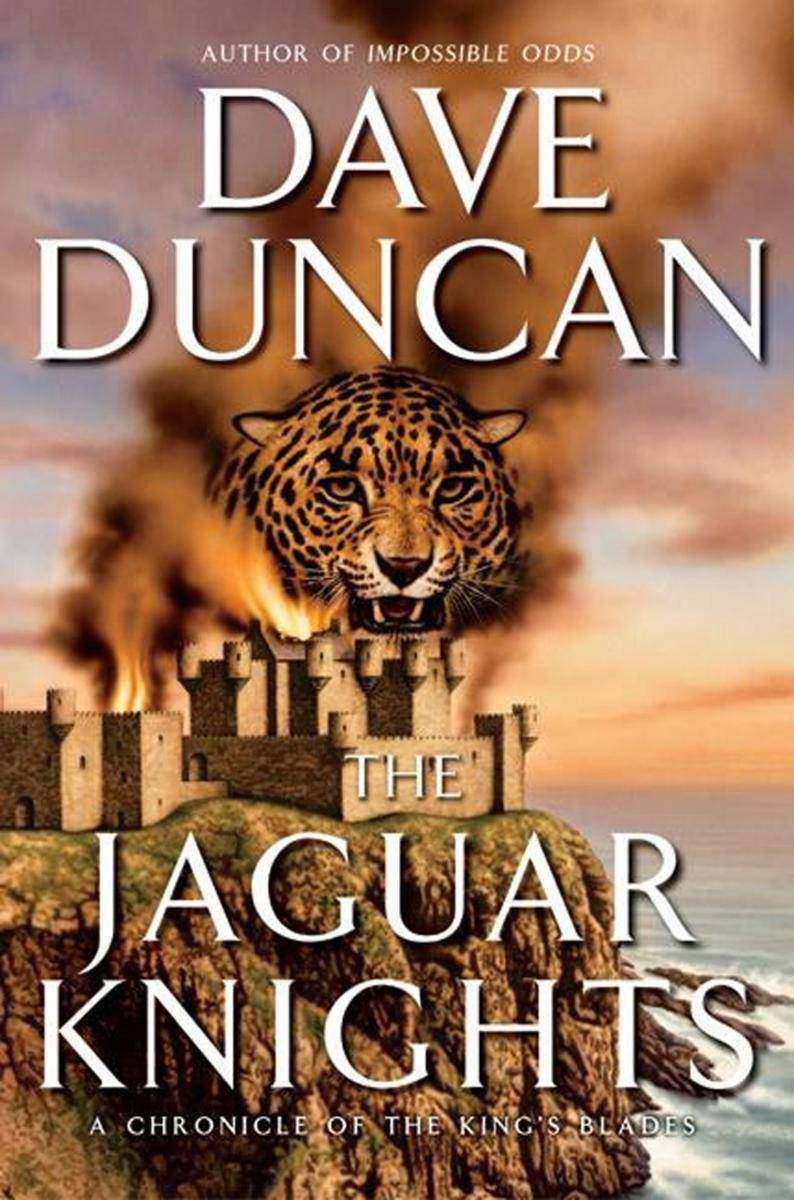
The Jaguar Knights
¥55.31
The realm's most feared swordsman, Sir Wolf has earned his name, the "King's Killer," well. Unlike many of his brother Blades, however, Wolf detests his sworn duty to do the bloody bidding of a liege he can never respect. But when an impregnable fortress is breached and a former royal mistress is abducted by brazen assailants, Wolf must leap into the fray.Burdened with the company of his disgraced brother, Sir Lynx—the only Blade ever to lose his ward and live—and shadowed by a mysterious Inquisitor with a secret agenda, Wolf must make his way across a landscape of nightmares vivid and terrible enough to chill any fearless heart. For somewhere in this dark, unfamiliar world, the fate of all Chivial hangs in the balance—and it is the destiny of one reluctant Blade to tip the scales to salvation . . . or doom.
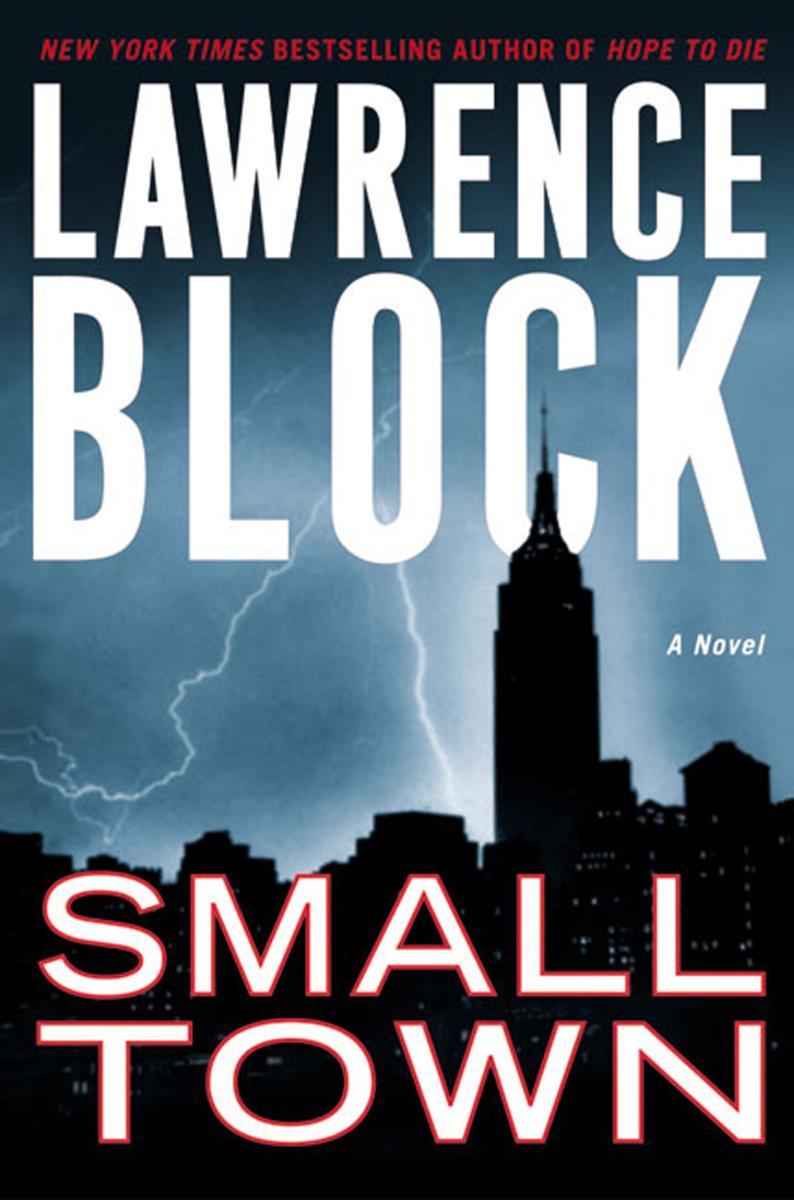
Small Town
¥56.07
The author of dozens of acclaimed novels including those in the Scudder and Keller series, Lawrence Block has long been recognized as one of the premier crime writers of our time. Now, the breathtaking skill, power, and versatility of this Grand Master are brilliantly displayed once again in a mesmerizing new thriller set on the streets of the city he knows and loves so well.That was the thing about New York -- if you loved it, if it worked for you, it ruined you for anyplace else in the world.In this dazzlingly constructed novel, Lawrence Block reveals the secret at the heart of the Big Apple. His glorious metropolis is really a small town, filled with men and women from all walks of life whose aspirations, fears, disappointments, and triumphs are interconnected by bonds as unbreakable as they are unseen. Pulsating with the lives of its denizens -- bartenders and hookers, power brokers and politicos, cops and secretaries, editors and dreamers -- the city inspires a passion that is universal yet unique in each of its eight million inhabitants, including: John Blair Creighton, a writer on the verge of a breakthrough;Francis Buckram, a charismatic ex–police commissioner -- and the inside choice for the next mayor -- on the verge of a breakdown;Susan Pomerance, a beautiful, sophisticated folk-art dealer plumbing the depths of her own fierce sexuality;Maury Winters, a defense attorney who prefers murder trials because there's one less witness;Jerry Pankow, an ex-addict who has turned being clean into a living, mopping up after New York's nightlife;And, in the shadows of a city reeling from tragedy, an unlikely killing machine who wages a one-man war against them all.Infused with the raw cadence, stark beauty, and relentless pace of New York City, Small Town is a tour de force Block fans old and new will celebrate.
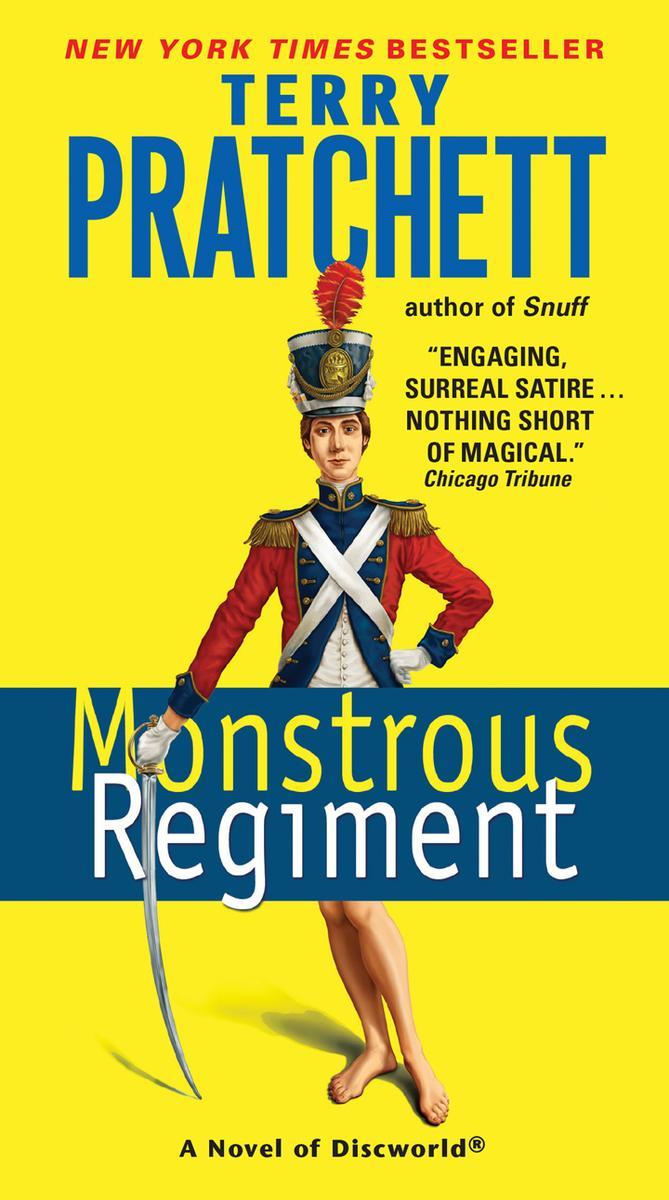
Monstrous Regiment
¥55.91
War has come to Discworld ... again.And, to no one's great surprise, the conflict centers around the small, arrogantly fundamentalist duchy of Borogravia, which has long prided itself on its unrelenting aggressiveness. A year ago, Polly Perks's brother marched off to battle, and Polly's willing to resort to drastic measures to find him. So she cuts off her hair, dons masculine garb, and -- aided by a well-placed pair of socks -- sets out to join this man's army. Since a nation in such dire need of cannon fodder can't afford to be too picky, Polly is eagerly welcomed into the fighting fold—along with a vampire, a troll, an Igor, a religious fanatic, and two uncommonly close "friends." It would appear that Polly "Ozzer" Perks isn't the only grunt with a secret. But duty calls, the battlefield beckons. And now is the time for all good ... er ... "men" to come to the aid of their country.
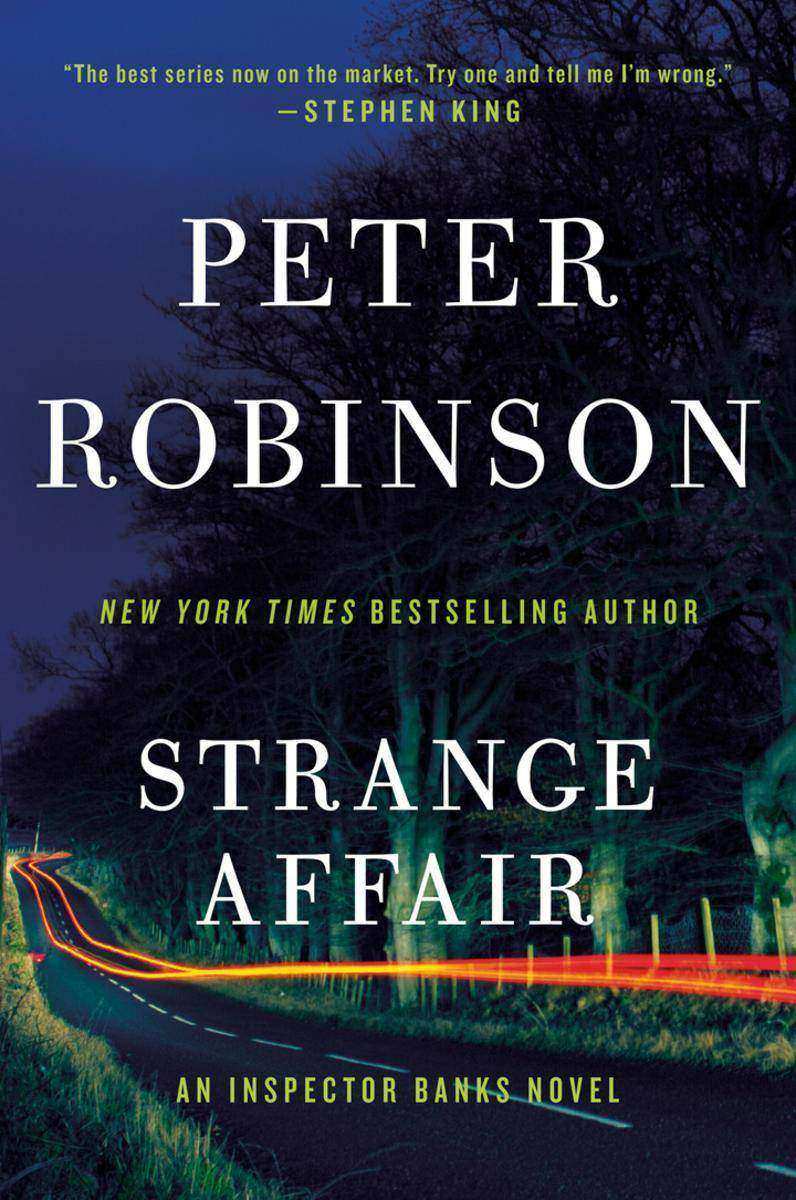
Strange Affair
¥55.91
LOUISE PENNY calls Peter Robinson's new novel In the Dark Places a "thrilling, brilliantly plotted, beautifully paced" read. Available August 11, 2015—preorder your copy today!On a warm summer night, an attractive woman hurtles north in a blue Peugeot with a hastily scrawled address in her pocket, while, back in London, a desperate man leaves an urgent late-night phone message on his brother's answering machine. By sunrise the next morning, the woman is found inside her car along an otherwise peaceful country lane, shot, execution-style, through the head.Welcome to the idyllic Yorkshire Dales, where Detective Inspector Annie Cabbot arrives on the scene and discovers, to her surprise, a slip of paper in the dead woman's pocket that bears the name of her colleague and erstwhile lover, Detective Chief Inspector Alan Banks. Banks, meanwhile—already haunted and withdrawn after nearly dying in the fire that destroyed his home—has gone missing just when he's needed most, and has left plenty of questions behind.As Annie struggles to determine whether or not Banks is safe—and what role he may have played in the woman's murder—Banks himself investigates the mysterious disappearance of his estranged brother, Roy, whose late-night call for help brings Banks back to London. Working from Roy's swank apartment, Banks makes the rounds to Roy's old haunts and slowly inhabits the life of his younger brother—the black sheep of the family, who always seemed to sail a little too close to the wind. As the trail of clues about Roy's life and associations draws Banks into a dark circle of conspiracy and corruption, mobsters and murder, Banks suddenly realizes he's running out of time to save Roy, and by digging too deep, he may be exposing himself and his family to the same—possibly deadly—danger.

Stick
¥88.56
After serving time for armed robbery, Ernest "Stick" Stickley is back on the outside and trying to stay legit. But it's tough staying straight in a crooked town -- and Miami is a pirate's paradise, where investment fat cats and lowlife drug dealers hold hands and dance. And when a crazed player chooses Stick at random to die for another man's sins, the struggling ex-con is left with no choice but to dive right back into the game. Besides, Stick knows a good thing when he sees it -- and a golden opportunity to run a very profitable sweet revenge scam seems much too tasty to pass up.

Ghost Force
¥55.31
The year is 2011.An oil-hungry world is starving . . .. . . and Argentina, with Russia's help, is determined to brutally wrest the petroleum-rich Falkland Islands from British hands. Enraged over this brazen act of international piracy, Great Britain dispatches a battle fleet to the islands for the second time in thirty years—unaware that Viper K-157, a lethal Russian Akula-class submarine, lies in wait, stuffed to the gunwales with ship-killingtorpedoes.America cannot sit idle as hell explodes in the South Atlantic and, under the stern eye of Admiral Arnold Morgan, the military's most powerful weapon is unleashed to hammer Argentina into submission: the U.S. Navy SEALs. The outcome of the unforeseen war that's igniting in America's backyard ultimately depends upon her awesome "ghost force” and their successful execution of two remarkable clandestine missions—while the consequences of failure may be too terrible to consider.

Mystic River
¥69.16
"There are threads in our lives. You pull one, and everything else gets affected."When they were children, Sean Devine, Jimmy Marcus, and Dave Boyle were friends. But then a strange car pulled tip to their street. One boy got into the car, two did not, and something terrible happened — something that ended their friendship and changed all three boys forever.Twenty-five years later, Sean Devine is a homicide detective. Jimmy Marcus is an ex-con who owns a corner store. And Dave Boyle is trying to hold his marriage together and keep his demons at bay — demons that urge him to do terrible things.When Jimmy Marcus's daughter is found murdered, Sean Devine is assigned to the case. His personal life unraveling, he must go back into a world he thought he'd left behind to confront not only the violence, of the present but the nightmares of his past. His investigation brings him into conflict with Jimmy Marcus, who finds that his old criminal impulses tempt him to solve the crime with brutal justice. And then there is Dave Boyle, who came home the night Jimmy's daughter died covered with someone else's blood.While Sean Devine attempts to use the law to return peace and order to the neighborhood, Jimmy Marcus finds his need for vengeance pushing him ever closer to a moral abyss from which lie wont be able to return, and Dave's wife, Celeste, sleeps at night with a man she fears may very well be a monster. a monster who fathered her child and hides his true nature from everyone, possibly even himself.A tense and unnerving psychological thriller, Mystic River is also an epic novel of love and loyalty, faith and family, in which people irrevocably marked by the past find themselves on a collision course with the darkest truths of their own hidden selves.

Flesh and Bone
¥69.16
Anthropologist Dr. Bill Brockton founded Tennessee's world-famous Body Farm—a small piece of land where corpses are left to decay in order to gain important forensic information. Now, in the wake of a shocking crime in nearby Chattanooga, he's called upon by Jess Carter—the rising star of the state's medical examiners—to help her unravel a murderous puzzle. But after re-creating the death scene at the Body Farm, Brockton discovers his career, reputation, and life are in dire jeopardy when a second, unexplained corpse appears in the grisly setting.Accused of a horrific crime—transformed overnight from a respected professor to a hated and feared pariah—Bill Brockton will need every ounce of his formidable forensic skills to escape the ingeniously woven net that's tightening around him . . . and to prove the seemingly impossible: his own innocence.

The Girl with No Shadow
¥90.51
The wind has always dictated Vianne Rocher's every move, buffeting her from the French village of Lansquenet-sous-Tannes to the crowded streets of Paris. Cloaked in a new identity, that of widow Yanne Charbonneau, she opens a chocolaterie on a small Montmartre street, determined to still the wind at last and keep her daughters, Anouk and baby Rosette, safe. But the weather vane soon turns, and Zozie de l'Alba blows into their lives. Charming and enigmatic, Zozie provides the brightness that Yanne's life needs—as her vivacity and bold lollipop shoes dazzle rebellious and impressionable preadolescent Anouk. But beneath their new friend's benevolent fa?ade lies a ruthless treachery—for devious, seductive Zozie has plans that will shake their world to pieces.

Island of Lost Girls
¥83.03
While parked at a gas station, Rhonda sees something so incongruously surreal that at first she hardly recognizes it as a crime in progress. She watches, unmoving, as someone dressed in a rabbit costume kidnaps a young girl. Devastated over having done nothing, Rhonda joins the investigation. But the closer she comes to identifying the abductor, the nearer she gets to the troubling truth about another missing child: her best friend, Lizzy, who vanished years before.From the author of the acclaimed Promise Not to Tell comes a chilling and mesmerizing tale of shattered innocence, guilt, and ultimate redemption.

Even the Wicked
¥56.07
Matthew Scudder knows that justice is an elusive commodity in the big city, where a harmless man can be shot dead in a public place criminals fly free through holes in a tattered legal system. But now a vigilante is roaming among the millions, executing those he fees deserve to die. He calls himself "The Will of the People"—an ingenious serial killer who announces his specific murderous intentions to the media before carrying through on his threats. A child molester, a Mafia don, a violent anti-abortionist—even the protected and untouchable are being ruthlessly erased by New York's latest celebrity avenger.Scudder knows that no one is innocent—but who among us has the right to play GodIt is a question that will haunt the licensed p.i. on his journey through the bleak city grays, as he searches for the sanity in urban madness. . .and for a frighteningly efficient killer who can do the impossible.

Fallout
¥55.31
Devastated at being reprimanded for a midair collision, TOPGUN instructor Luke Henry quits the Navy to start a private aerial combat school in the Nevada desert, where he and a number of his buddies, all former TOPGUN fliers -- part of the Old Bro network -- train fighter pilots for the U.S. government. Prior to leaving the Navy, Luke discovers that the United States has purchased twenty MiG-29s -- Russia's front-line fighter -- from Moldova, of the former Soviet Union. These are the very planes he wants to use for his own school, flying the Russian MiGs from an abandoned Air Force base.But Luke's lucrative contract with the U.S. government comes with a caveat: among his students are a group of Pakistani Air Force pilots -- handpicked by the Department of Defense -- whom he must instruct. Luke is hesitant to train fighters from another country in the skills he learned at TOPGUN, but he won't be allowed to start the school without agreeing. The school opens, but the closer he gets to these students, the more he suspects that they may have an entirely different, and malicious, agenda in mind. They have a bone to pick with the United States and may be using Luke's school as their Trojan Horse to get into the country and launch an attack that would cause more damage than that sustained at Pearl Harbor. It falls to Luke to discover their plan and to stop it before it spirals out of control.With Fallout James W. Huston scores big with his most riveting and thought-provoking thriller yet. Filled with exciting twists and turns and characters whose motivations will keep readers guessing until the startling conclusion, Fallout is a story of domestic terrorism that is as realistic as it is terrifying.

Night Watch
¥70.10
One moment, Sir Sam Vimes is in his old patrolman form, chasing a sweet-talking psychopath across the rooftops of Ankh-Morpork. The next, he's lying naked in the street, having been sent back thirty years courtesy of a group of time-manipulating monks who won't leave well enough alone. This Discworld is a darker place that Vimes remembers too well, three decades before his title, fortune, beloved wife, and impending first child. Worse still, the murderer he's pursuing has been transported back also. Worst of all, it's the eve of a fabled street rebellion that needlessly destroyed more than a few good (and not so good) men. Sam Vimes knows his duty, and by changing history he might just save some worthwhile necks—though it could cost him his own personal future. Plus there's a chance to steer a novice watchman straight and teach him a valuable thing or three about policing, an impressionable young copper named Sam Vimes.

Paragon Lost
¥55.91
Many legends have emerged from the shadows of Ironhall, yet surely none can surpass the greatness and glory predestined for Sir Beaumont—possessor of the purest and strongest of hearts, and a mind as quick, keen, and accurate as his sword. But the day he sets out in the service of the elderly Lord Wassail turns to a black one, and young Beau's journey ends in horror and blood . . . and disgrace. Banished from the King's Blades, he now faces a grim future as a homeless pariah, a creature to be shunned and despised. But redemption can come from unexpected directions and in unrecognizable guises. Approached in secret by the legendary Durendal, now Grand Master of the Order, the dishonored paragon is offered one last chance to win back his weapon and his place among his brothers in arms. But to do so, Beau must ride alone back through the icy gates of Hell . . . and do battle with the Devil himself.
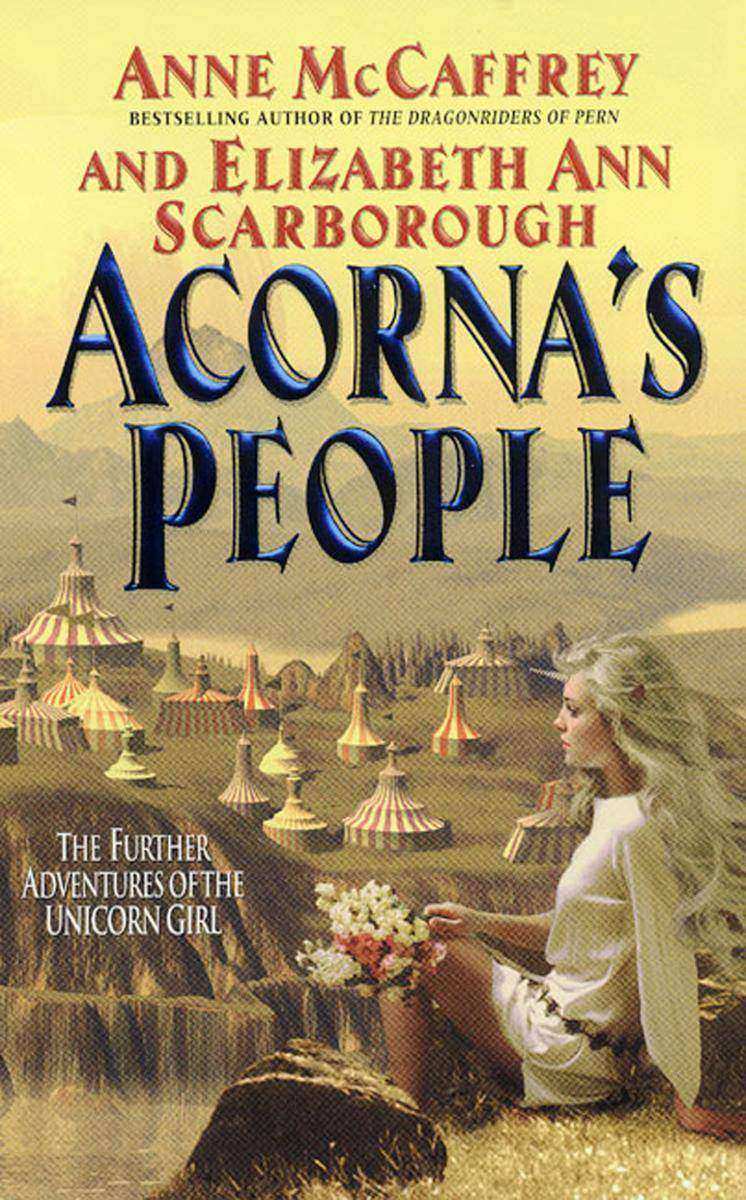
Acorna's People
¥56.07
Filled with adventure and wonder, Acorna's Peoplecontinues the enthralling saga of Acorna, the beautiful, brave, and kindhearted creature known as the Unicorn Girl."Welcome Home, Linyaari Child!"With the help of her "uncles" and the thousands of humans who love and admire her, Acorna has found her true people, the peaceful, telepathic Linyaari. But Acorna still has much to do before she can enjoy her new home. The legendary resting place of the lost Linyaari ancestors has yet to be found. And with the help of a rogue spacetrader and his feline sidekick, Acorna must strive to right an unspeakable wrong and defeat an enemy even crueler than the Khleevi. Along the way, she will at last uncover the Universe's most carefully guarded secret--the true nature of the ancient link between the Linyaari and the space-faring humans she has also come to think of as her "people."
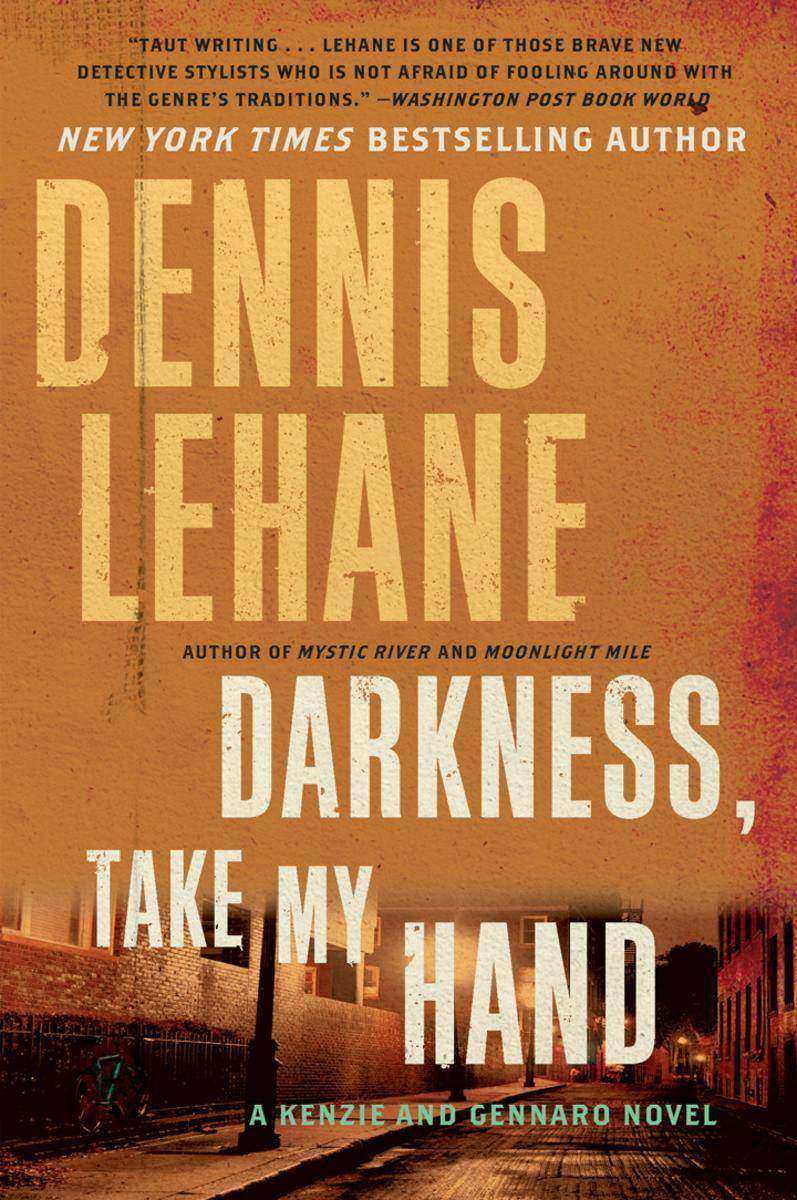
Darkness, Take My Hand
¥69.16
The master of the new noir, Dennis Lehane magnificently evokes the dignity and savagery of working-class Boston in this terrifying tale of darkness and redemption.Patrick Kenzie and Angela Gennaro's latest client is a prominent Boston psychiatrist running scared from a vengeful Irish mob. The private investigators know something about cold-blooded retribution. Born and bred on the mean streets of blue-collar Dorchester, they've seen the darkness that lives in the hearts of the unfortunate. But an evil for which even they are unprepared is about to strike as secrets long-dormant erupt, setting off a chain of violent murders that will stain everything—including the truth.

The Septembers of Shiraz
¥77.49
In the aftermath of the Iranian revolution, rare-gem dealer Isaac Amin is arrested, wrongly accused of being a spy. Terrified by his disappearance, his family must reconcile a new world of cruelty and chaos with the collapse of everything they have known. As Isaac navigates the tedium and terrors of prison, forging tenuous trusts, his wife feverishly searches for him, suspecting, all the while, that their once-trusted housekeeper has turned on them and is now acting as an informer. And as his daughter, in a childlike attempt to stop the wave of baseless arrests, engages in illicit activities, his son, sent to New York before the rise of the Ayatollahs, struggles to find happiness even as he realizes that his family may soon be forced to embark on a journey of incalculable danger.A page-turning literary debut, The Septembers of Shiraz simmers with questions of identity, alienation, and love, not simply for a spouse or a child, but for all the intangible sights and smells of the place we call home.
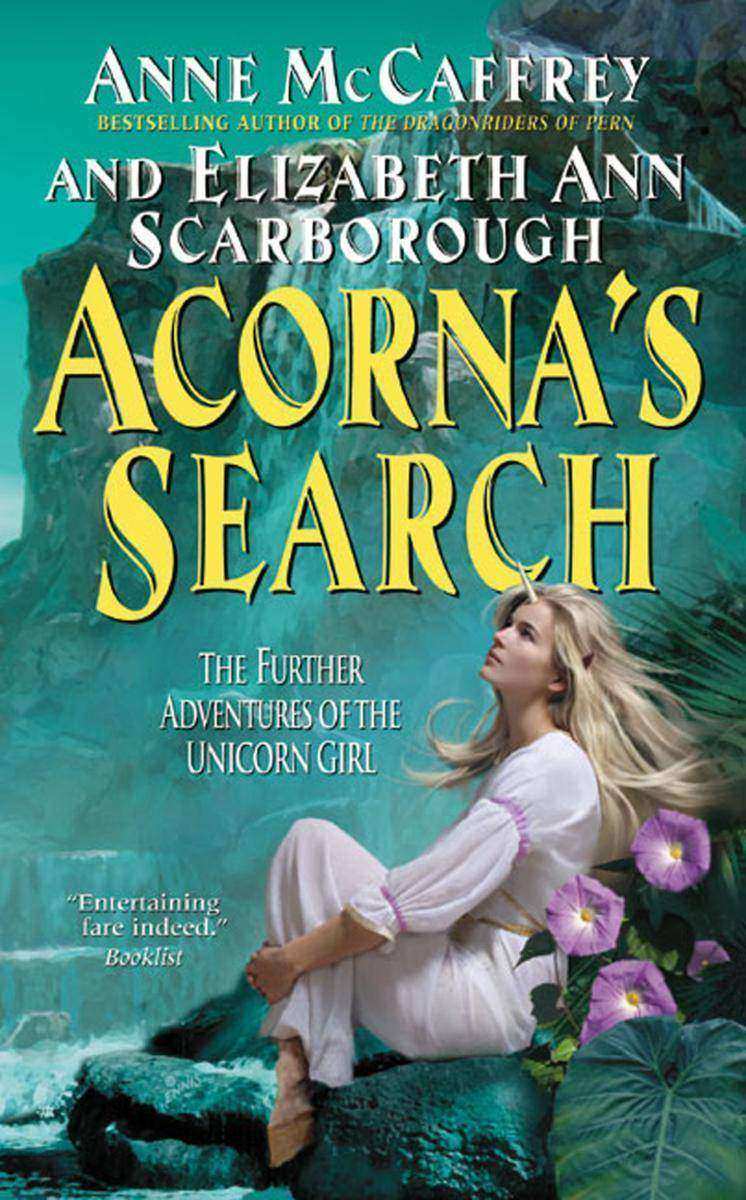
Acorna's Search
¥51.92
The homeworld Acorna has never known was horribly scarred in the brutal attack by the cold-blooded Khleevi, but the Linyaari -- the unicorn girl's gentle, spiritual race -- live on. Now is the time for healing and rebuilding, for restoring the natural beauty corrupted by the savage insectile oppressors. But Acorna's Linyaari friends and colleagues begin mysteriously disappearing soon after work gets under way, among them her beloved Aari. And her desperate search for answers will lead courageous Acorna to a shocking discovery beneath the surface of her people's world -- and deep into the realms of limitless space, where the truth of the origin of everything awaits.

Sleepless
¥33.18
The swaying Palms Hotel late-night room-service menuTuck-Me-In Tuna Salad on Rye $7.50Catch-Some-ZZZs Cheeseburger and Fries$10.00Up-All-Night Chocolate-Chip Cookies with Milk$5.50Bedtime Banana Split$7.00I can't go to sleep!!! And not because of the cute boy lying next to me. There's a killer stalking me in my dreams. And if it's up to him . . . I'll never wake up. I have to find a way to get him, before he gets me.




 购物车
购物车 个人中心
个人中心



